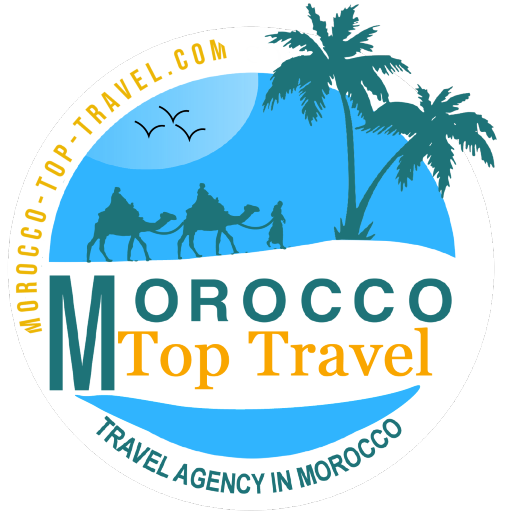Morocco is one of the world’s most captivating destinations—a land where ancient traditions blend seamlessly with modern life, where vibrant cities meet peaceful deserts, and where travelers are welcomed with genuine warmth. Located at the crossroads between Africa, Europe, and the Arab world, Morocco offers extraordinary diversity in landscapes, cultures, and experiences, making it an ideal destination for tours in Morocco, vacation packages, and unforgettable adventures.
Whether you’re planning your first trip or returning to explore more, this comprehensive guide covers everything you need to know before traveling to Morocco—from history and culture to weather, transportation, food, and top attractions.
1. Overview: Why Visit Morocco?
Morocco is famous for its colorful souks, majestic mosques, imperial cities, Golden Sahara dunes, dramatic mountains, and beautiful beaches. Travelers choose Morocco because it offers:
•Rich history dating back thousands of years
•Stable and safe travel conditions
•Incredible natural diversity: desert, mountains, coastline, oases
•Delicious cuisine ranked among the best worldwide
•A wide range of Morocco tour packages for every budget
•Authentic experiences with friendly local people
Whether you want a luxury escape, cultural immersion, or a desert adventure, Morocco tours provide something for every type of traveler.
2. Geography & Landscape
One of the kingdom’s biggest strengths is its geographical diversity. Morocco includes:
• The Atlas Mountains
Stretching from north to south, perfect for hiking, Amazigh culture, snow in winter, and breathtaking valleys.
• The Sahara Desert
Located in the southeast, especially around Merzouga, Erg Chebbi, and Zagora—famous worldwide for camel trekking and luxury desert camps.
• Atlantic & Mediterranean Coastlines
Beautiful beaches in Essaouira, Agadir, Tangier, and Mediterranean towns like Al Hoceima and Saidia.
• Imperial Cities
Marrakech, Fes, Meknes, and Rabat—rich in UNESCO sites, architecture, palaces, and bustling souks.
Morocco’s landscape variety makes it ideal for photography, adventures, and fully customizable Morocco private tours.
3. Cities You Must Visit in Morocco
Marrakech
The cultural heartbeat of Morocco. Highlights include Jemaa el-Fnaa square, Bahia Palace, Majorelle Garden, and the historic medina. A perfect departure point for Marrakech desert tours.
Fes
The spiritual and cultural capital. Home to the world’s oldest university, narrow medieval streets, tanneries, and traditional craftsmanship.
Chefchaouen
The iconic blue city in the Rif Mountains—peaceful, photogenic, and perfect for relaxation.
Casablanca
Modern Morocco with the impressive Hassan II Mosque, Corniche seaside area, and international lifestyle.
Rabat
The administrative capital, combining greenery, modernity, and historical landmarks.
Merzouga
Gateway to the Sahara Desert—famous for dunes, camel rides, 4×4 adventures, and stargazing.
4. Culture & People
Morocco is a blend of Arab, Amazigh (Berber), Andalusian, and African influences. The people are known for their hospitality and respect for guests.
Languages
•Arabic (official)
•Amazigh (Tamazight)
•French (widely used)
•English (increasingly common)
Religion
Islam is the main religion, and traditional values can be seen in clothing, food, and festivals.
5. Moroccan Food: A Culinary Treasure
Moroccan cuisine is one of the highlights of any trip. Some must-try dishes include:
•Tagine (chicken, lamb, vegetables, lemon & olives)
•Couscous
•Pastilla
•Harira soup
•Mint tea
•Tanjia Marrakchia
The use of spices, sweetness with savory combinations, and slow-cooked meals make Moroccan food world-famous.
6. Weather & Best Time to Visit
Morocco can be visited year-round thanks to its varied climate.
Best months:
•Spring (March–May) – green landscapes, comfortable weather
•Autumn (September–November) – perfect for desert tours
•Winter – ideal for visiting the Sahara and cities
Avoid:
•July & August if you don’t like extreme heat (especially in desert and Marrakech)
7. Transportation in Morocco
Getting around is easy and accessible:
•Trains connect main cities (fast and comfortable).
•Buses reach all regions.
•Private drivers/tours are the most convenient for long trips.
•Domestic flights between Casablanca, Marrakech, Fes, Dakhla, and Agadir.
Many travelers prefer Morocco private tours to avoid logistical challenges and enjoy flexibility.
8. Safety &
Travel Tips
Morocco is generally safe for tourists. Still, some helpful tips include:
•Avoid unofficial guides.
•Keep valuables secure in crowded places.
•Respect local customs (especially during Ramadan).
•Drink bottled water.
Choosing a licensed and reputable company for your Morocco travel packages is essential.
9. Top Experiences You Shouldn’t Miss
• Camel trekking in the Sahara
A once-in-a-lifetime adventure.
• Sleeping in a luxury desert camp
Stargazing, drums, fire shows, and desert silence.
• Exploring imperial cities
Palaces, medinas, riads, and souks.
• Hiking in the Atlas Mountains
Valleys, waterfalls, and authentic Amazigh villages.
• Surfing along the Atlantic coast
Taghazout and Essaouira are surf paradises.
• Historical tours
Roman ruins of Volubilis, Kasbah of Ait Ben Haddou, and Andalusian architecture.
10. Currency & Costs
•Currency: Moroccan Dirham (MAD)
•Morocco is affordable, with options from budget to luxury.
•Desert tours, riads, and private trips offer excellent value.
11. Morocco Travel Packages & Tours
Morocco offers thousands of tailored itineraries, including:
•Morocco desert tours
•Morocco private tours
•Family tours
•Honeymoon packages
•Cultural tours
•Adventure tours
•Luxury Morocco vacation packages
•Trips from Marrakech, Fes, Tangier, Casablanca
Choosing the right Morocco tour package ensures a smooth and memorable journey.
12. Why Morocco Should Be Your Next Destination
Morocco is safe, beautiful, exotic, and easy to reach. It’s perfect for solo travelers, couples, families, and groups. The country’s combination of culture, landscapes, and hospitality makes it one of the best travel destinations in the world.
From desert adventures to mountain escapes, from ancient medinas to modern cities—Morocco truly has it all.
